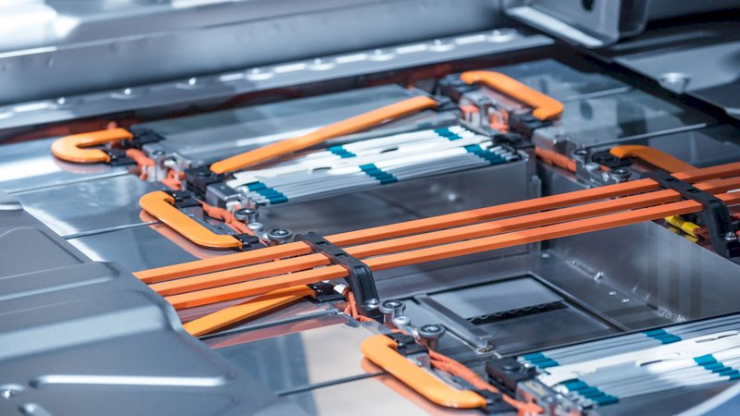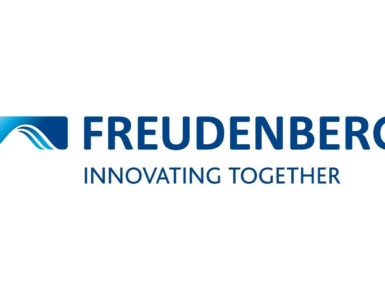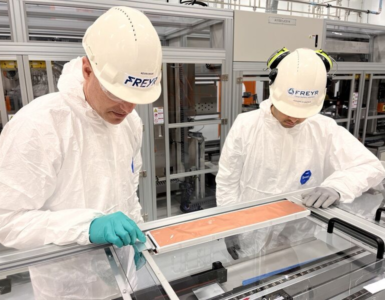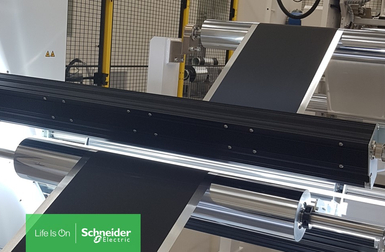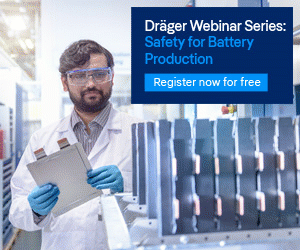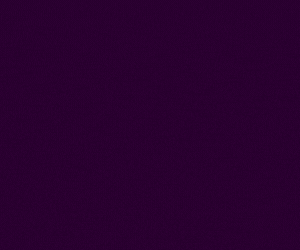European Commission approves €95 million Polish aid for expansion of LG Chem electric vehicles battery plant.
The European Commission has found that Poland’s €95 million measure in favour of LG Chem Group (‘LG Chem’) is in line with EU State aid rules. The investment aid will support the expansion of LG Chem’s battery cell production facility for electric vehicles in the Polish Dolnośląskie region.
The aid will also contribute to the development of the Dolnośląskie region, whilst preserving competition.
Margrethe Vestager, Executive Vice-President, in charge of competition policy, said:
Our in-depth investigation has confirmed that Poland’s €95 million public support to expand the production capacity of an LG Chem’s electric vehicles battery plant is in line with our State aid rules.
“The aid will contribute to job creation and to the economic development of a disadvantaged region, without unduly distorting competition.”
The Polish measure
LG Chem Ltd. is a South Korean chemical company operating in Poland through its subsidiary LG Energy Solution Wrocław.
In 2017, LG Chem decided to invest €1 billion to expand its production capacity of lithium-ion cells, battery modules and battery packs for electric vehicles (‘EV’) in its existing plant in the Polish Dolnośląskie region (an area eligible for regional aid under Article 107(3)(a) of the Treaty on the Functioning of the European Union).
The new plant is expected to supply batteries for more than 295,000 EV each year in the European Economic Area (‘EEA’).
In July 2019, Poland notified the Commission of its plans to grant €95 million to support the expansion of the plant.
In August 2020, the Commission opened an in-depth investigation to assess whether the measure was compatible with the Guidelines on Regional State Aid for 2014-2020. In particular, the Commission sought to clarify whether:
- the aid had an “incentive effect”, i.e. whether the decision by LG Chem to expand its battery production capacity in Poland was directly triggered by the Polish public support or whether it would have been carried out in that area even without public support.
- the public support would contribute to regional development and whether it is appropriate and proportionate;
- the aid amount exceeded the maximum permissible aid intensity for the project.
The Commission’s assessment
During its in-depth investigation, the Commission received and analysed feedback submitted by Poland, by LG Chem and by several interested parties, including other companies active in the value chain, and the Ministry of Trade, Industry and Energy of South Korea.
The Commission’s investigation confirmed that in 2017, when deciding where to expand its production capacity, LG Chem had considered two options: (i) a third country outside the EEA, and (ii) its existing plant in Biskupice Podgórne (Dolnośląskie region).
The Commission’s investigation showed that, given the subsidies offered by the third country, the investment would have been more economically viable in that country. Therefore, without the €95 million Polish support, LG Chem would have opted to invest outside of the EEA.
The Commission’s investigation also showed that the aid was limited to the minimum necessary to incentivise LG Chem to carry out the investment in Poland, as it did not exceed the amount necessary to increase the profitability of the project in Poland to the same level as the one in the third country.
Additionally, the Commission found that the investment aid will contribute to job creation, as well as to the economic development and to the competitiveness of the disadvantaged region of Dolnośląskie.
On this basis, the Commission concluded that the positive effects of the project on regional development clearly outweigh any possible distortion of competition brought about by the State aid.
The Commission therefore approved the measure under EU State aid rules.
Background
Under the Guidelines on Regional State Aid for 2014-2020, an aid measure has to meet the following conditions in order to be approved by the Commission:
- The aid must have a real “incentive effect”, in other words, it must effectively encourage the beneficiary to invest in a specific region;
- The aid must be kept to the minimum necessary to attract the investment to the disadvantaged region;
- The aid must not have undue negative effects, such as the creation of excess capacity in a declining market;
- The aid must not exceed the regional aid ceiling applicable to the region in question;
- The aid must not directly cause the relocation of existing or closed down activities from elsewhere in the EU to the aided establishment; and
- The aid must not divert investment away from another region in the EU which has the same, or lower, level of economic development than the region where the aided investment takes place.
In April 2021, following an evaluation of the Guidelines on Regional State Aid for 2014-2020 conducted in 2019 and an extensive consultation of all stakeholders on the draft text, the Commission adopted revised Regional Aid Guidelines for 2022-2027.
The revised Guidelines started applying as of 1 January 2022. They do not apply to aid granted before 1 January 2022 (as in the case at stake), which has therefore been assessed under the Guidelines on Regional State Aid for 2014-2020.
The non-confidential version of the decision will be made available under the case number SA.53903 in the State aid register on the Commission’s Competition website once any confidentiality issues have been resolved. New publications of State aid decisions on the internet and in the Official Journal are listed in the State Aid Weekly e-News.
State aid: Commission approves €95 million Polish aid for expansion of LG Chem’s electric vehicles battery plant, March 18, 2022

